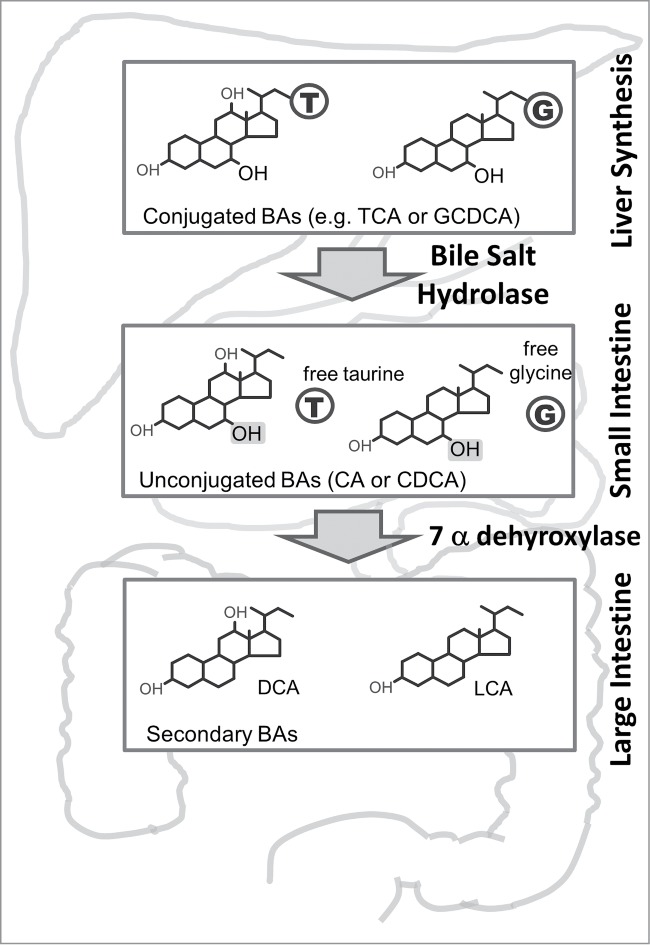Figure 1.

Microbial Metabolism of Bile Acids. Bile acids are synthesized from cholesterol in the liver as moieties that are conjugated either to a glycine (G) or taurine (T) molecule. They are stored in the gallbladder and subsequently released into the duodenum. In the small intestine microbial BSH activity removes the glycine or taurine molecules to produce unconjugated bile acids (BAs). Bile acids are efficiently reabsorbed via the terminal ileum into the enterohepatic portal system but some enter the large intestine where they are further metabolised by microbial 7a dehydroxylase enymes to produce secondary BAs. CA, cholic acid; CDCA, chenodeoxycholic acid; TCA, taurocholic acid; GCDCA, glycochenodeoxycholic acid; DCA, deoxycholic acid; LCA, lithocholic acid. T, taurine; G, glycine, represent free amino acids liberated through BSH activity.
